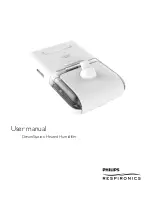
PN 30-123 Rev 10/03
Band-It
™
Fitting Instructions
This document contains important information that must be passed on to
the user of the product. Do not discard this document before delivery to the
end user.
An ankle-positioning device does more than lower extremity positioning.
Ankle-positioning enhances
full body positioning.
It is ideal for individuals with poor lower extremity control, spasticity, impaired
sensation, eversion/inversion malalignments, body-scheme deficits, and heel cord shortening.
Ankle-
positioning devices are designed to be worn over socks and shoes.
Each VARILITE Band-It mounts to the footplate of a wheelchair by two Dual Tab Tri-Ends, secured by 16/20
in. screws.
Fitting
Size Selection
The Band-it is designed to secure around the ankle, with the body of the
device extending over the top of the client’s shoes to distribute pressure
over a larger area.
It is important that a client wear shoes and socks
during Band-it use.
Measure the circumference of the ankle, two finger
widths above the malleoli (Fig. 1). When measuring, the client should be
wearing shoes, socks and applicable orthoses.
Extra Small
…………….4½ – 6 in. (12-23cm)
Small
………………………6 – 9 in. (15-23cm)
Medium
…………………...9 – 11 in. (23-28cm)
Large
……………………..11 – 13 in (28-33cm)
Installation
1.
Fasten Band-It
Align accent webbing with Achilles’ tendon
and fasten buckle (Fig. 2). Buckle will not be
centered. Adjust webbing using D-ring. Band-
It should be snug, but not constricting (Fig. 3).
2.
Adjust Dynamic Strap component
For a static effect, pull the webbing on the
topside of the tension lock. This eliminates the
dynamic component (Fig. 4). To make use of
the dynamic component, decrease the tension
of the webbing (Fig. 5)
Note: The use of dynamic positioning should
be based on the client’s needs, desired
positioning effect and therapist’s
recommendations.
Fig. 1
Fig. 2
Fig. 3
Fig. 4
Fig. 5




















